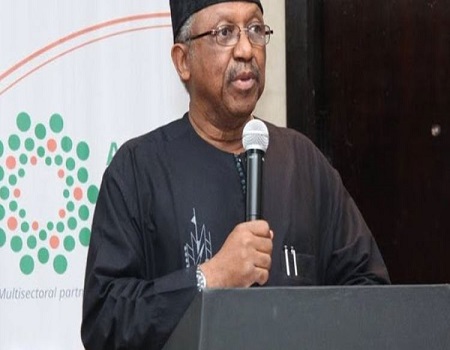Federal Government has said Nigeria and indeed, Africa will continue to suffer the devastating impact of the COVID-19 pandemic if the global inequitable rollout of vaccines is not addressed.
It also stated that it has led the health response with Nigeria Centre for Disease Control(NCDC) and the National Primary Health Care Development Agency(NPHCDA) to combat the COVID-19 pandemic in Nigeria with the challenges such as relatively weak health systems and the inequities in the distribution or COVID-19 response tools, from PPEs reagents at the onset to vaccines at present.
Speaking at a press briefing of the World Health Organization (WHO) Africa Media briefing on the COVID-19 third wave and COVID-19 vaccine rollout in Africa, the Minister of Health, Dr Osagie Ehanire said the most at risk of the pandemic such as health workers, older populations and those with underlying conditions are unprotected in lower-income countries, while richer countries are vaccinating those much less at risk and procuring booster shots.
Ehanire, therefore, called on richer countries to share doses now with Nigeria through existing mechanisms such as COVAX and the African Vaccine Acquisition Task Team (AVATT) managed by the Africa CDC.
“We thank the US and the UK who have shared doses through COVAX and the Africa CDC with Nigeria, and have made commitments for these doses to be delivered in the coming month.”
“It is equally important that richer countries support the IP waiver and facilitate free movement of vital raw materials for vaccines to scale up production capacity.”
“We appeal to vaccine manufacturers to make it as easy as possible for countries to share doses and prioritise tech transfer agreements to expand global production.”
“In Nigeria, we have continued to build on our rich experience from polio vaccination campaigns, to strengthen our country readiness for a nationwide rollout of COVID-19 vaccines.”
“We anticipate an increase in the volume of doses coming to Nigeria in the next three months and have begun to implement measures that create a balance between demand and supply.”
“This includes scale-up of our ultracold chain capacity, risk communication and community engagement, training of health workers among others.”
“Our national regulatory agency, NAFDAC, has continued to evaluate and approve vaccines for use, to ensure we do not experience bottlenecks in accessing the global portfolio of COVID-19 vaccines.”
“I will end by re-emphasising this point. No country in the world is safe until every country is safe. We, therefore, call for equitable access to COVID-19 vaccines and other tools including diagnostics and therapeutics.”
“We still have a window of opportunity to prevent further spread of the Delta variant and prevent the devastating impact it will bring to African countries.”
Meanwhile, according to new data released, on Thursday, by the United Nations Development Programme(UNDP), the World Health Organisation(WHO) and the University of Oxford also stated that COVID-19 vaccine inequity will have a lasting and profound impact on socio-economic recovery in low- and lower-middle-income countries without urgent action to boost supply and assure equitable access for every country, including through dose sharing.
The data also stated that an acceleration in scaling up manufacturing and sharing enough vaccine doses with low-income countries could have added $38 billion to their GDP forecast for 2021 if they had similar vaccination rates as high-income countries.
At a time when richer countries have paid trillions in stimulus to prop up flagging economies, now is the moment to ensure vaccine doses are shared quickly, all barriers to increasing vaccine manufacturing are removed and financing support is secured so vaccines are distributed equitably and a truly global economic recovery can take place.
Source: Nigerian Tribune

